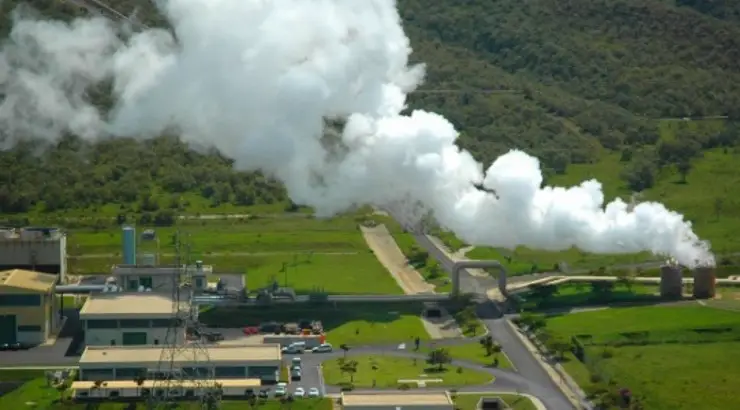The biggest energy producer in Kenya, KenGen, is progressing with plans to construct a Sh110 billion industrial park at Olkaria in Naivasha, Nakuru County.
The industrial park will focus on industries including fertilizer, iron and steel, textiles, foods, and beverages, among others. Construction will start in 2025.
Read also:Tender floated for Dekemhare Solar Power Plant project in Eritrea
The 1,824 hectares owned by KenGen at the Olkaria geothermal hub will be used for the project.
The National Environment Management Authority (Nema) recently sought public comments on the project. It received a strategic environmental and social assessment (SESA) report from the company for its Energy (Industrial) Masterplan.
How the Olkaria industrial park project would be carried out
The proposed masterplan will be carried out in four phases. It is said that each phase will take five years. The first phase is expected to begin in the year 2025. This is according to the notice seeking public comment on the project by Nema.
2045 will see the completion of the KenGen Energy (Industrial) Park.
The company initiated a search in 2014 for a consultant to conduct a feasibility study on the project, develop a master plan, and also prepare a budget for it.
The consultant was also tasked with developing the financial model, institutional framework, and marketing strategy. It was also supposed to come up with implementation roadmap for the energy park.
For the project that would be finished in 20 years, KenGen recruited a South Korean firm to carry out a feasibility study in February 2016.
The electricity producer commenced a search for build own operate transfer contractors in 2017 for the project. The project includes setting up an energy park, constructing warehouses and manufacturing plants, and also installing steam generation facilities.
All kinds of industries, from small to large, will be catered to by KenGen Energy Park and will all profit from the company’s cheaper electricity.
The pilot solar PV plant
In the meantime, KenGen alleges to have invested in a 40 MW solar photovoltaic (PV) prototype plant at the Seven Forks Hydro Stations, situated in Eastern Kenya.
The solar power plant is expected to increase value by using the empty spaces around KenGen’s existing projects. It is also expected to diversify income streams.
The solar energy plant, according to KenGen, will be built on 80 hectares of land. The site is fully owned by the company and is currently unoccupied.
The site receives more than 2,000 kWh/m2 of solar radiation, which is high.
The project is a part of the company’s newly revamped corporate strategy. It aims to add 3,000 MW to the national grid in the next ten years.
The installed generation capacity of the country will increase to 6,000 MW as a result.
In order to improve the efficiency of its existing power plants for the sustainable generation of electricity, KenGen is also moving forward with its rehabilitation plans.

Leave a Reply